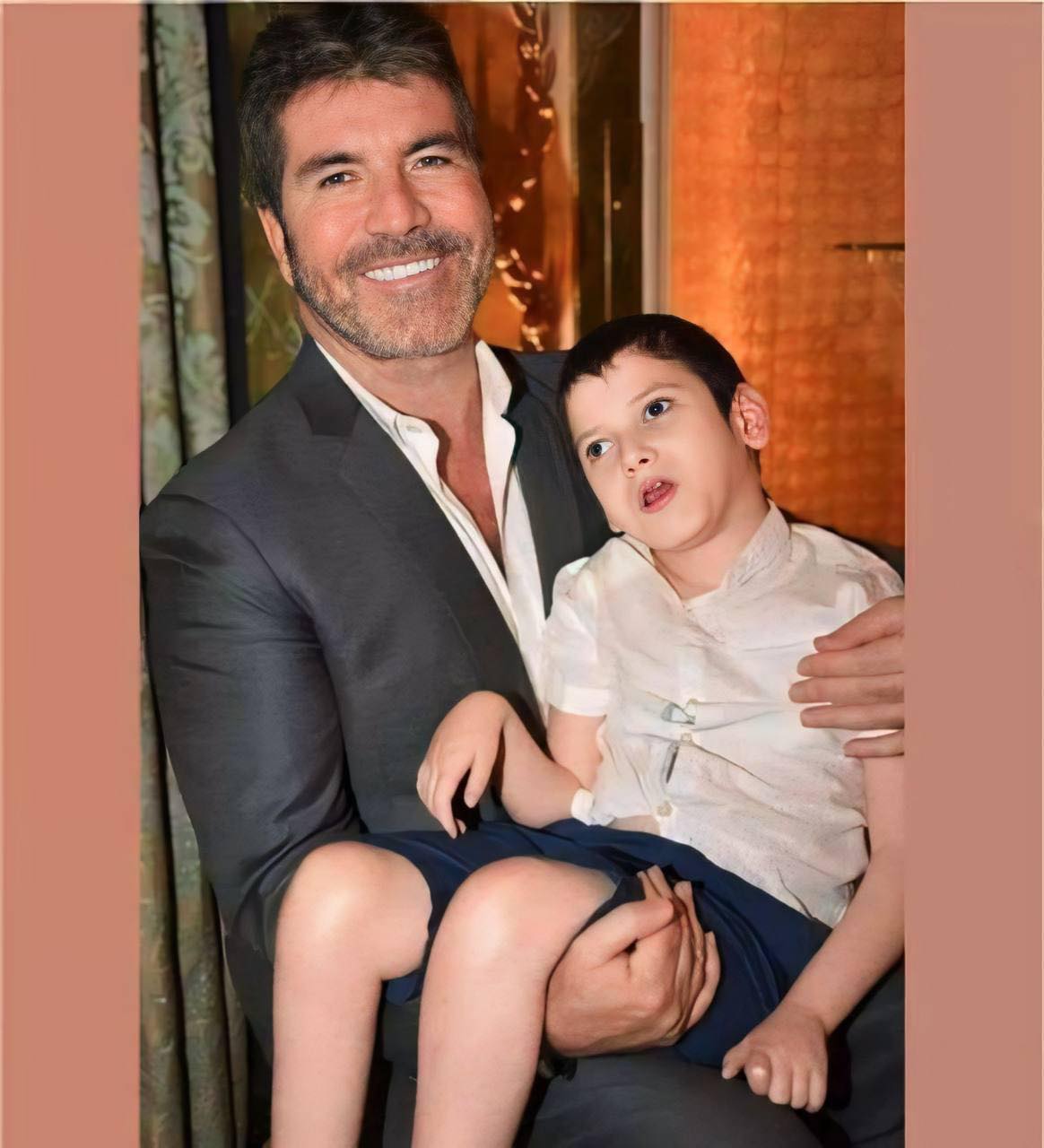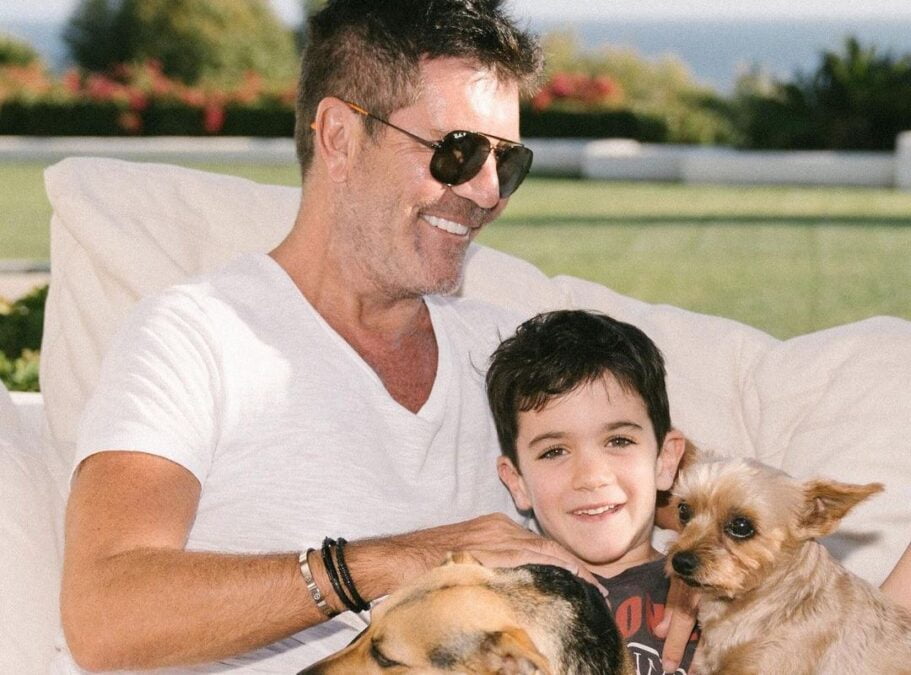Yes, Simon Cowell's son, Eric, has autism, a developmental disorder characterized by challenges with social skills, repetitive behaviors, speech and nonverbal communication, as well as by unique strengths and differences.
Autism is a spectrum disorder, meaning that it affects individuals differently and to varying degrees. Eric was diagnosed with autism at age 3. Cowell has been open about his son's diagnosis, and he has spoken about the challenges and rewards of raising a child with autism.
Cowell has said that Eric is a "happy and loving child" and that he is "proud of the progress he has made." He has also said that Eric has taught him a lot about patience and acceptance.
| Name | Birth Date | Occupation |
|---|---|---|
| Eric Cowell | February 14, 2014 | N/A |
Autism is a complex disorder, and there is no one-size-fits-all approach to treatment. However, there are a variety of therapies and interventions that can help children with autism learn and develop. Early intervention is key, and with the right support, children with autism can reach their full potential.
Is Simon Cowell's Son Disabled?
The key aspects related to the question "Is Simon Cowell's son disabled?" can be summarized as follows:
- Diagnosis
- Spectrum disorder
- Challenges
- Support
- Early intervention
- Potential
- Acceptance
Autism is a complex disorder, and there is no one-size-fits-all approach to treatment. However, there are a variety of therapies and interventions that can help children with autism learn and develop. Early intervention is key, and with the right support, children with autism can reach their full potential.
Simon Cowell has been open about his son's diagnosis, and he has spoken about the challenges and rewards of raising a child with autism. He has said that Eric is a "happy and loving child" and that he is "proud of the progress he has made." He has also said that Eric has taught him a lot about patience and acceptance.
The story of Simon Cowell and his son Eric is a reminder that autism is not a disability, but a difference. With the right support, children with autism can learn and develop and reach their full potential.
1. Diagnosis
A diagnosis is the identification of a disease or condition. In the case of autism, a diagnosis is made based on a child's behavior and development. There is no one definitive test for autism, but a diagnosis can be made by a qualified professional, such as a developmental pediatrician or child psychologist.
- Symptoms
The symptoms of autism can vary widely from child to child. Some common symptoms include difficulty with social interactions, repetitive behaviors, and speech and language delays.
- Diagnosis
A diagnosis of autism is typically made based on a child's behavior and development. There is no one definitive test for autism, but a diagnosis can be made by a qualified professional, such as a developmental pediatrician or child psychologist.
- Treatment
There is no cure for autism, but there are a variety of therapies and interventions that can help children with autism learn and develop. Early intervention is key, and with the right support, children with autism can reach their full potential.
- Support
Children with autism need support from their parents, teachers, and other caregivers. There are a variety of resources available to help families of children with autism, including support groups, therapy, and educational services.
A diagnosis of autism can be a challenging experience for families. However, it is important to remember that autism is not a disability, but a difference. With the right support, children with autism can learn and develop and reach their full potential.
2. Spectrum disorder
Autism spectrum disorder (ASD) is a complex developmental condition that affects a person's ability to socialize and communicate. It is a spectrum disorder, meaning that it affects individuals differently and to varying degrees. Some people with ASD may have difficulty with social interactions, while others may have difficulty with repetitive behaviors. There is no one-size-fits-all approach to treatment for ASD, but early intervention and support can help individuals with ASD learn and develop.
- Social skills
People with ASD may have difficulty with social interactions, such as making friends, understanding social cues, and participating in group activities. They may also have difficulty understanding the emotions of others and expressing their own emotions.
- Communication
People with ASD may have difficulty with communication, such as understanding and using language, and may have difficulty with nonverbal communication, such as gestures and facial expressions.
- Repetitive behaviors
People with ASD may engage in repetitive behaviors, such as rocking back and forth, flapping their hands, or repeating words or phrases. These behaviors may be a way of coping with stress or anxiety.
- Sensory sensitivities
People with ASD may be sensitive to certain sensory stimuli, such as loud noises, bright lights, or certain textures. This sensitivity may make it difficult for them to participate in everyday activities.
ASD is a complex disorder, but with the right support, individuals with ASD can learn and develop. Early intervention is key, and there are a variety of therapies and interventions that can help individuals with ASD reach their full potential.
3. Challenges
Children with autism face a variety of challenges, including difficulty with social interactions, communication, and repetitive behaviors. These challenges can make it difficult for children with autism to participate in everyday activities and can lead to social isolation and loneliness.
One of the biggest challenges for children with autism is difficulty with social interactions. Children with autism may have difficulty understanding social cues, such as facial expressions and body language. They may also have difficulty understanding the emotions of others and expressing their own emotions. This can make it difficult for children with autism to make friends and participate in group activities.
Another challenge for children with autism is difficulty with communication. Children with autism may have difficulty understanding and using language. They may also have difficulty with nonverbal communication, such as gestures and facial expressions. This can make it difficult for children with autism to communicate their needs and wants to others.
Repetitive behaviors are another common challenge for children with autism. Children with autism may engage in repetitive behaviors, such as rocking back and forth, flapping their hands, or repeating words or phrases. These behaviors may be a way of coping with stress or anxiety.
The challenges faced by children with autism can be significant. However, with the right support, children with autism can learn and develop and reach their full potential.
4. Support
Support is essential for children with autism and their families. There are a variety of support services available, including early intervention, therapy, and educational services. Early intervention is key, and with the right support, children with autism can learn and develop and reach their full potential.
- Early intervention
Early intervention is key for children with autism. Early intervention services can help children with autism learn and develop skills that will help them succeed in school and in life. Early intervention services may include speech therapy, occupational therapy, and physical therapy.
- Therapy
Therapy can help children with autism learn and develop skills that will help them succeed in school and in life. Therapy may include speech therapy, occupational therapy, physical therapy, and behavioral therapy.
- Educational services
Educational services can help children with autism learn and develop skills that will help them succeed in school and in life. Educational services may include special education classes, resource rooms, and assistive technology.
- Support groups
Support groups can provide families with information, support, and resources. Support groups can help families connect with other families who are facing similar challenges.
Support is essential for children with autism and their families. With the right support, children with autism can learn and develop and reach their full potential.
5. Early intervention
Early intervention is key for children with autism, including Simon Cowell's son, Eric. Early intervention services can help children with autism learn and develop skills that will help them succeed in school and in life. These services may include speech therapy, occupational therapy, and physical therapy.
- Importance of early diagnosis and intervention
Early diagnosis and intervention are essential for children with autism. The earlier a child receives intervention, the better the chances are that they will reach their full potential. Early intervention can help children with autism learn and develop skills that will help them succeed in school and in life.
- Types of early intervention services
There are a variety of early intervention services available to children with autism. These services may include speech therapy, occupational therapy, physical therapy, and behavioral therapy.
- Benefits of early intervention
Early intervention can help children with autism learn and develop skills that will help them succeed in school and in life. These skills may include communication skills, social skills, and self-help skills.
- How to access early intervention services
There are a variety of ways to access early intervention services for children with autism. Parents can contact their local school district or health department for more information.
Early intervention is essential for children with autism. With the right support, children with autism can learn and develop and reach their full potential.
6. Potential
The potential of individuals with autism, including Simon Cowell's son, Eric, is often underestimated. With the right support, children with autism can learn and develop and reach their full potential. This potential may include:
- Academic achievement
Children with autism can learn and achieve in school. With the right support, they can develop the skills they need to succeed in the classroom and beyond.
- Social skills
Children with autism can develop strong social skills. With the right support, they can learn how to interact with others, make friends, and participate in group activities.
- Independent living
Children with autism can learn to live independently. With the right support, they can develop the skills they need to live on their own, manage their finances, and care for themselves.
- Employment
Children with autism can find meaningful employment. With the right support, they can develop the skills they need to get a job, keep a job, and advance in their careers.
The potential of individuals with autism is limitless. With the right support, they can learn and develop and reach their full potential.
7. Acceptance
Acceptance is a key component of supporting individuals with autism, including Simon Cowell's son, Eric. Acceptance means understanding and valuing autistic individuals for who they are, without trying to change them. It means recognizing that autism is a difference, not a deficit, and that autistic individuals have unique strengths and perspectives to offer the world.
Acceptance is important for autistic individuals because it helps them to feel valued and supported. It allows them to be themselves without fear of judgment or rejection. Acceptance also helps to reduce the stigma associated with autism, which can make it easier for autistic individuals to live full and productive lives.
There are many ways to show acceptance of autistic individuals. One way is to simply listen to them and learn about their experiences. Another way is to be patient and understanding, and to avoid making assumptions about their abilities. It is also important to challenge stereotypes about autism and to promote accurate information about the condition.
Accepting autistic individuals can be challenging at times, but it is essential for their well-being. By accepting autistic individuals, we can help them to reach their full potential and live happy and fulfilling lives.
FAQs about Autism and Simon Cowell's Son
Autism spectrum disorder (ASD) is a complex developmental condition that affects a person's ability to socialize and communicate. It is a spectrum disorder, meaning that it affects individuals differently and to varying degrees.
Question 1: Is Simon Cowell's son autistic?
Yes, Simon Cowell's son, Eric, has autism.
Question 2: What are the symptoms of autism?
The symptoms of autism can vary widely from child to child. Some common symptoms include difficulty with social interactions, repetitive behaviors, and speech and language delays.
Question 3: Is there a cure for autism?
There is no cure for autism, but there are a variety of therapies and interventions that can help children with autism learn and develop. Early intervention is key, and with the right support, children with autism can reach their full potential.
Question 4: How can I support a child with autism?
There are a variety of ways to support a child with autism. Some important things to remember include being patient, understanding, and accepting. It is also important to learn about autism and how it affects the individual child. There are many resources available to help families of children with autism, including support groups, therapy, and educational services.
Question 5: What is the future outlook for children with autism?
The future outlook for children with autism is positive. With the right support, children with autism can learn and develop and reach their full potential. Many children with autism go on to live full and productive lives, and they can make valuable contributions to their communities.
Autism is a complex condition, but it is important to remember that it is a difference, not a deficit. Children with autism have unique strengths and perspectives to offer the world. With acceptance and support, they can reach their full potential and live happy and fulfilling lives.
Transition to the next article section:
For more information about autism, please visit the following resources:
- Autism Speaks
- Centers for Disease Control and Prevention
- National Institute of Child Health and Human Development
Conclusion
Autism is a complex developmental condition that affects a person's ability to socialize and communicate. It is a spectrum disorder, meaning that it affects individuals differently and to varying degrees. Simon Cowell's son, Eric, has autism.
There is no cure for autism, but there are a variety of therapies and interventions that can help children with autism learn and develop. Early intervention is key, and with the right support, children with autism can reach their full potential. It is important to remember that autism is a difference, not a deficit. Children with autism have unique strengths and perspectives to offer the world. With acceptance and support, they can reach their full potential and live happy and fulfilling lives.
Article Recommendations



ncG1vNJzZmibkafBprjMmqmknaSeu6h6zqueaJmTqb%2Bmv9KeqmallaPBoriMoZyapKSdfKq%2FjKygpqeeYrCww8Slo2arn6N6pbXSmpmlnZRjtbW5yw%3D%3D